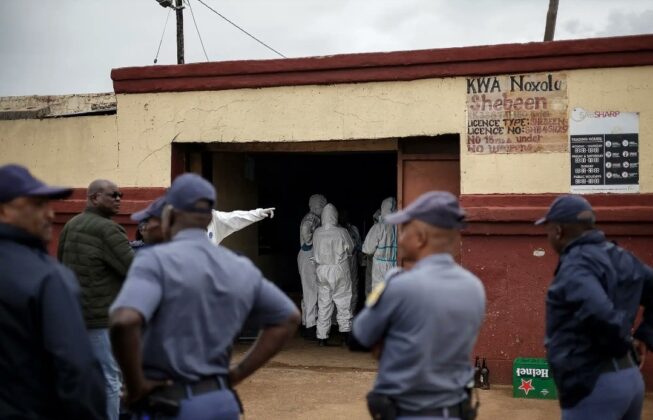![Trainees from the Public Order Police unit participate in drills at Tshwane Academy, 15 June 2024. [Gallo Images/Frennie Shivambu via The Citizen]](https://www.thepostnews.net/wp-content/uploads/2025/06/Police-sick-leave.jpg)
Trainees from the Public Order Police unit participate in drills at Tshwane Academy, 15 June 2024. [Gallo Images/Frennie Shivambu via The Citizen]
The Democratic Alliance (DA) has called for an urgent investigation into the R131.5 million spent by SAPS on paid sick leave during the 2023/24 financial year. The party says the figures are astonishing and require a full audit to determine whether the system is being abused or mismanaged.
On 15 June, Police Minister Senzo Mchunu revealed in Parliament that 618 SAPS employees were on paid sick leave for periods exceeding six months during the financial year. These leaves have been attributed to a combination of physical and mental health issues brought on by the demanding and high-stress nature of police work. However, the scale of the absenteeism has triggered concerns about possible abuse of the system and its impact on SAPS’ operational effectiveness.
Minister Mchunu acknowledged the emotional and psychological burdens on officers and announced measures to improve the SAPS’s wellness assistance services. At the recent National Policing Summit, Mchunu announced that SAPS would soon roll out expanded wellness measures. These include a 24/7 toll-free Employee Health and Wellness (EHW) hotline, trauma debriefing, and peer-support networks to address the growing mental health crisis within the force.
These reforms come amid growing concerns about SAPS’s capacity to support its members. A briefing by the Portfolio Committee on Police revealed that SAPS currently employs only 621 wellness professionals for a national workforce of over 187,000—a ratio that seems extremely inadequate.
Criminologist Professor Witness Maluleke of the University of Limpopo supported the principle behind the sick leave expenditure. He said, “The money is channelled to good use, as these members are still considered police officers until they are officially declared unfit or incapacitated.”
However, Maluleke warned that the persistent absenteeism contributes to an already overstretched police force.
Meanwhile, SAPS continues to face compounding challenges. According to recent media reports, three suicides and one attempted suicide have already been recorded since April 2025, while an estimated 5,300 officers leave the force each year. These figures underscore the toll that the job takes on frontline officers and the need for structural reforms that support service delivery and the police workers’ mental health.
As SAPS leadership and the Ministry of Police face growing pressure, the proposed wellness reforms—and the outcome of any investigation—will be closely watched to determine whether meaningful change is on the horizon.



